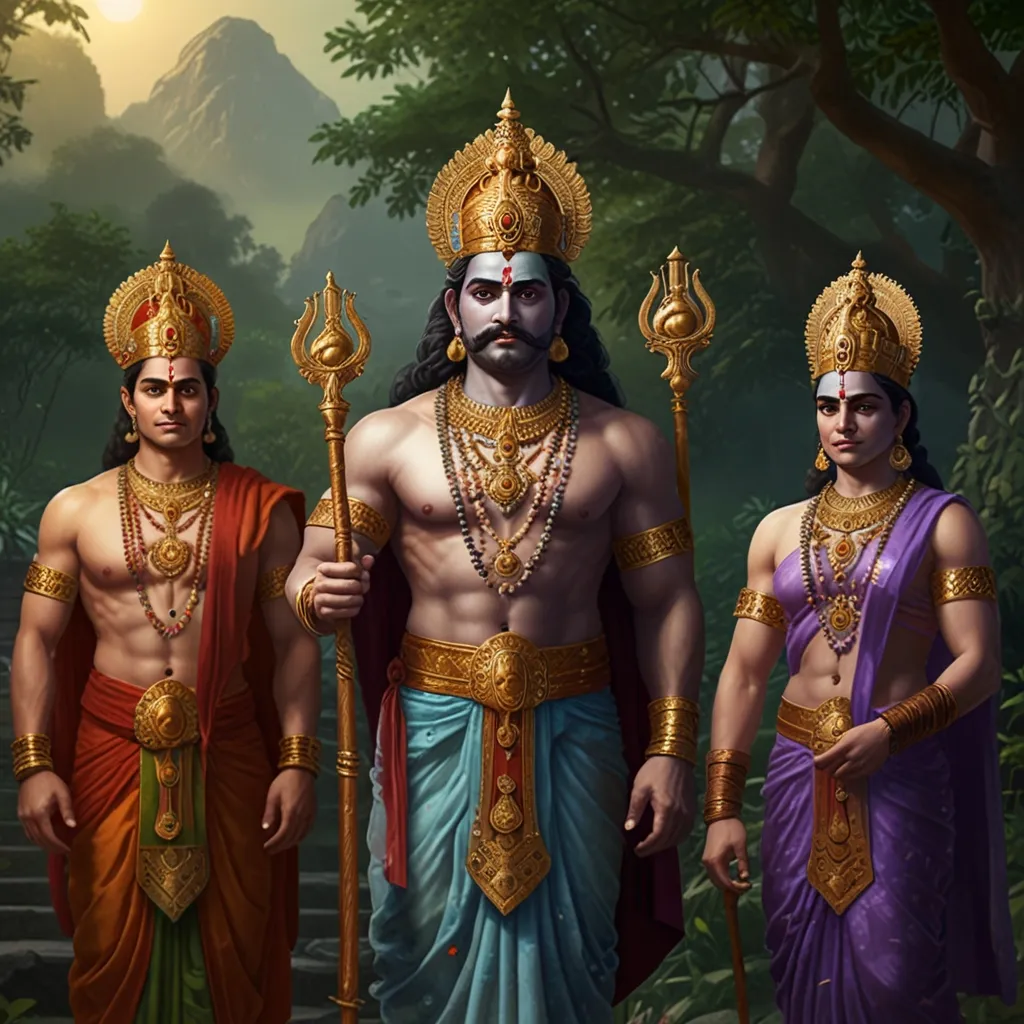So, picture it: way back in the mythic times of the Mahabharata, there was this cool king named Shantanu ruling Hastinapura. Life was good; he was a beloved ruler and spent his free time hunting in the forests. One day, while out on one of his typical hunting trips, he stumbled upon a gorgeous woman by the river. She was just breathtaking—simple yet elegant garments, and a fragrance that got to him. Bam! Love at first sight. Her name? Satyavati.
Now, here’s the twist. Satyavati wasn’t some princess or anything. She was the daughter of a fisherman and had this unique smell reminiscent of fish, giving her the nickname Matsyagandha, which literally means “Fish-Smell.” But boy, was she beautiful and kind-hearted. She helped her dad by ferrying folks across the river, and her life, though simple, was pretty fulfilling.
Shantanu was head over heels and quickly went to ask her dad for her hand in marriage. The fisherman dad was cool with it but had one non-negotiable condition: any son born from Satyavati and Shantanu’s union had to inherit the throne of Hastinapura. Big problem for Shantanu because he had already promised the throne to his eldest son, Devavrata, who he had with Ganga, a goddess.
This threw Shantanu into a massive dilemma. He couldn’t bear to lose Satyavati, but he was torn about breaking his promise to Devavrata. He returned to the palace, looking like a sad puppy. Devavrata, noticing his father’s distress, pressed for details. Once he got the lowdown, Devavrata made an epic sacrifice. He decided to renounce his claim to the throne and took a vow of lifelong celibacy to ensure there wouldn’t be any future disputes. Folks, this vow was so legit it earned him the name Bhishma, meaning “the one who takes a terrible vow.” The gods, moved by his selflessness, gave Bhishma the boon to choose his own time of death. Pretty cool, right?
With Bhishma’s vow settling the conditions, he went back to the fisherman, and the marriage was on. Shantanu and Satyavati got hitched in grand style, and she became the queen of Hastinapura. They had two sons, Chitrangada and Vichitravirya. Chitrangada was a brave warrior, while Vichitravirya was a skilled archer. But fate wasn’t kind—their sons died without leaving any heirs.
Satyavati, determined not to let the dynasty fall, called upon her elder son Vyasa, who she had born out of wedlock with sage Parashara. Vyasa was wise, powerful, and would later write the epic Mahabharata. Satyavati asked him to father children with the widows of Vichitravirya, Ambika and Ambalika. Vyasa agreed but warned her that the children might have defects due to the terrified state of the widows during conception.
True to his prediction, Ambika, terrified by Vyasa’s appearance, closed her eyes and gave birth to Dhritarashtra, who was born blind. Ambalika turned pale with fear and bore Pandu, who had pale skin. A maid who showed no fear bore Vidura, who was wise and just, but not a royal prince due to his maid-status.
Despite these hurdles, the Kuru dynasty marched on. Dhritarashtra ended up having a hundred sons known as the Kauravas despite being blind. Pandu, the pale-skinned guy, became king and had five sons with his wives Kunti and Madri, known as the Pandavas. Though Vidura wasn’t royal royalty, he became an invaluable advisor.
Satyavati’s ascendance from a humble fisherwoman to queen is more than a love story; it’s a saga of strength and determination. Her grit ensured the Kuru dynasty continued and played a massive role in unfolding the events of the Mahabharata. Her journey is a prime example of how humble beginnings can morph into grand destinies, proving that true strength lies in making sacrifices for the greater good.
In the grand tale of the Mahabharata, Satyavati’s legacy stands firm. Her descendants shaped the course of history, and her story remains an enduring lesson of love, sacrifice, and the power of a resilient spirit. From the fish-smelling girl to a queen who steered the destiny of a kingdom, Satyavati’s tale is one for the ages.






